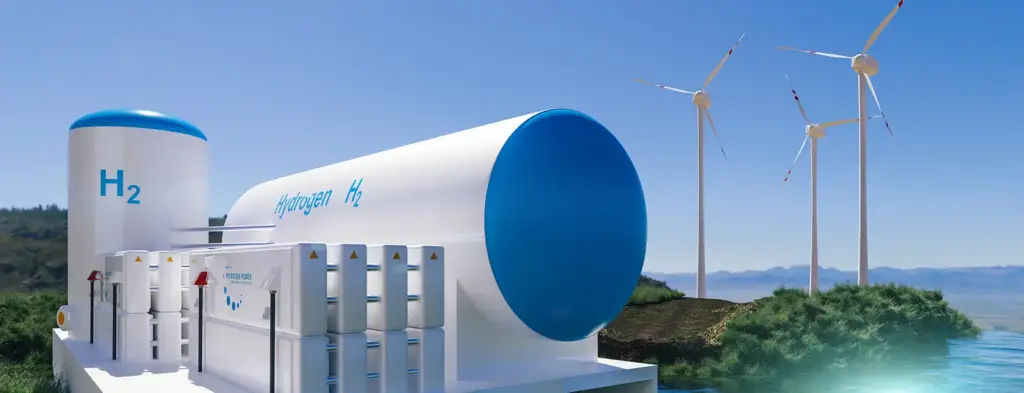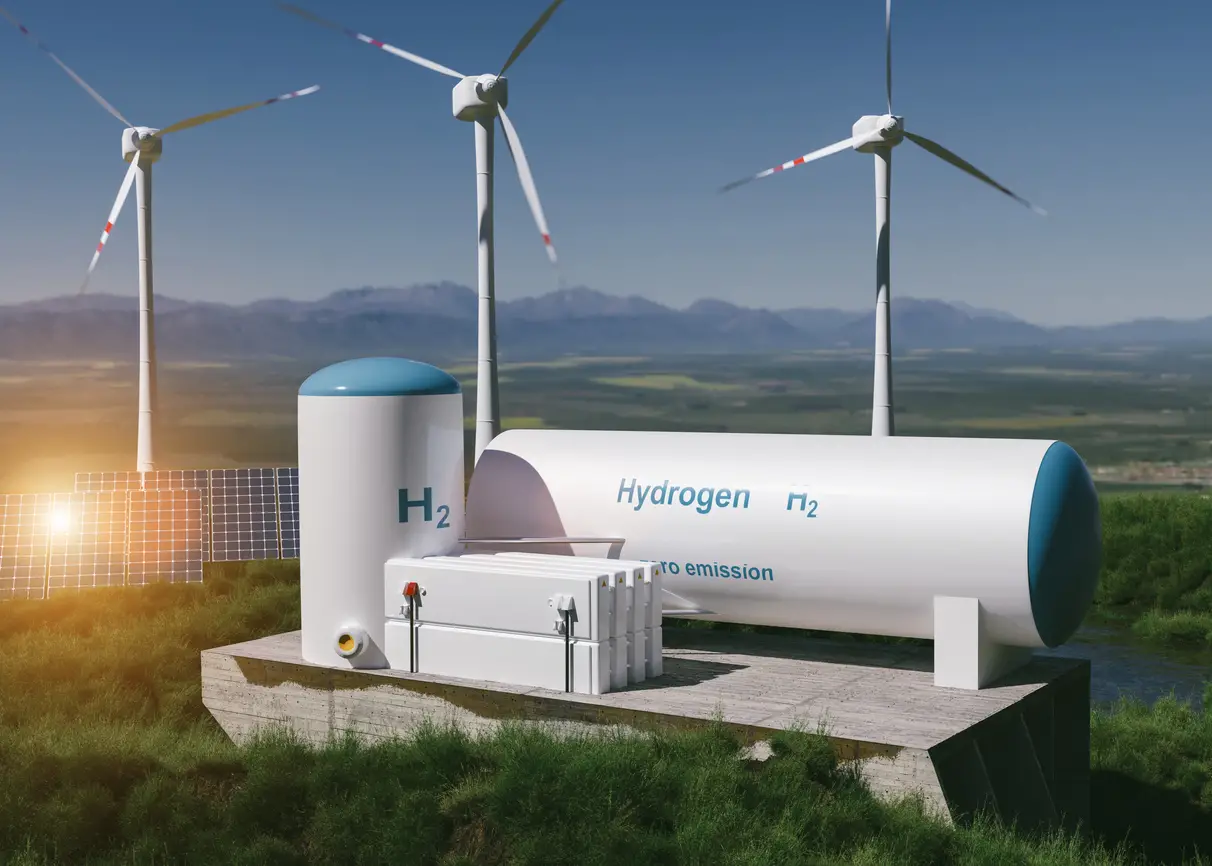Despite the best efforts of the UK government and the plumbing industry, a thorough review of scientific papers has concluded that Hydrogen is not suitable for use in home heating and is unlikely to become so in the potential future.
Many events at this week’s Labour Party Conference in Liverpool have been sponsored by hydrogen lobbyists, and they will also be heavily represented at next week’s Conservative Party Conference.
To replace the gas currently used to heat the vast majority of British homes, they want to convince the government to implement a widespread rollout of Hydrogen for residential heating. Heat pumps are the other major contender for low-carbon home heating, but proponents of Hydrogen say it would save homeowners from having to make that switch.
Remarks
In response to recent comments made by the UK energy secretary in a speech to the House of Commons, a report was recently published.
“I think Hydrogen is ultimately the silver bullet. We create it from renewable sources… we use it as an effective battery, and it can then, with some adjustments, be piped through to people’s houses to heat them during the winter,” UK’s newly elected energy secretary, Jacob Rees Mogg, said on Friday.
In response to this, Jan Rosenow, the report’s author, and Europe Director at the energy think-tank the Regulatory Assistance Project told BBC that “Using Hydrogen for heating may sound attractive at first glance
. However, all of the independent research on this topic comes to the same conclusion: heating with Hydrogen is a lot less efficient and more expensive than alternatives such as heat pumps, district heating, and solar thermal,”
Hydrogen as an energy source
Hydrogen has only two subatomic particles or protons, and an electron, making it the most elementary and abundant element on our planet. Hydrogen is useful because it stores and releases energy, yet its unadulterated form is extremely uncommon in the wild and must be synthesized from other compounds.
It is a means of transporting energy from one place to another rather than the energy itself, and it has the capacity to hold or transfer enormous amounts of power. Hydrogen fuel cells can produce electricity, or electricity and heat, from the chemical reaction of Hydrogen with another element.
Currently, petroleum refining and fertilizer production account for the bulk of hydrogen usage, while transportation and utilities are emerging markets.

If burned in a fuel cell, Hydrogen produces only water, electricity, and heat; it is, therefore, a clean fuel.
Researcher and research
The possibility of using Hydrogen to heat homes was discussed in a research piece written by Jan Rosenow and published in the journal Joule. He claims in his paper that numerous research teams have discovered the idea to be unworkable.
One method of lowering carbon emissions that scientists from all over the world have suggested is to use Hydrogen as a fuel.
Because it doesn’t release carbon dioxide when burned, Hydrogen has been hailed as a fantastic alternative to many different types of fuels, including gasoline for automobiles. Recently, it has been proposed as a potential alternative to natural gas, which is the fuel of choice for the generation of electricity and the heating of buildings (both commercial and residential). Rosenow questioned whether it was wise to use it for this purpose.
He studied the work of 32 groups to learn more about the viability of using Hydrogen as a power source across various fields. None of them had discovered Hydrogen to be an effective method of heating buildings.

The problem and conclusion
Rosenow notes that it would be ineffective to use Hydrogen in this manner. Hydrogen production would need to use a renewable resource in order to be practical. Then, it would either need to be burned at a plant to heat a boiler that drove a turbine to generate electricity to send to homes, or it would need to be sent to homes directly.
It would be roughly five times less efficient than a typical heat pump if it were delivered directly to homes and burned in a furnace. He points out that this strategy would require more renewable energy than anticipated, necessitating the construction of additional wind and solar farms and raising the price of hydrogen heating.
In his conclusion, he points out that discussions about the use of Hydrogen to heat homes divert attention from more important initiatives, which delay the changes that are necessary to reduce greenhouse gas emissions as soon as possible.
Hydrogen heating costs could ‘nearly double’ compared to gas.
This week, a separate study by analyst firm Cornwall Insight found that heating a home with Hydrogen would cost nearly twice as much as with just gas. Problems with a hydrogen pilot project in Scotland were reported by the Guardian last week.
Hydrogen, Rosenow told the Guardian newspaper, is not a viable alternative to heat pumps, contrary to claims made by industry interests. “For policymakers, Hydrogen for heating appears attractive because it seems easy: just replace fossil gas with Hydrogen with no impact on households. The reality is that significant technical alterations are needed, including the pipework in homes and that it will cost people a lot of money to keep warm,” he said.

According to the industry’s top energy analysts, Hydrogen could end up being significantly more expensive than natural gas for home heating.
The report, commissioned by the renewable energy charity MCS Foundation, found that In the time between now and 2050 when the UK must have eliminated all greenhouse gas emissions by law, the cost of using Hydrogen in the home would increase by about 70% compared to using gas.
“While hydrogen does have a part to play in the decarbonization pathway, through, for example, use in the industrial sectors and in the use of surplus electricity, current and forecast costs all show it is simply uneconomical to use 100% hydrogen fuel for heating our homes.”, said Jitendra Patel, senior consultant at Cornwall Insight – eceee
Other Views
However, there are those in the energy sector who have a different view.
UK energy operators are represented by the Energy Networks Association, and their director of gas, James Earl, recently told the Guardian: “Since the UK’s customer base is so varied, there is no silver bullet for decarbonizing heating that will get us to the country’s net-zero emissions target. We need to consider a range of technologies, including Hydrogen, electrification, and others.”
Why Hydrogen? And what’s the problem with it?
Hydrogen’s appeal is that it can be produced from water, a resource that seems practically infinite, and that it doesn’t produce carbon dioxide when burned. Still, the process of creating Hydrogen presents significant obstacles, so it shouldn’t be expected to be a panacea for energy production.
While methane gas production is relatively clean, most Hydrogen in use today is produced through the use of fossil fuels (sometimes called “grey hydrogen”).
Electrolyzing water requires electricity, and in order for that electricity to be considered “green,” it must come from a renewable source. The process is inefficient, and that’s the main issue.
Instead of using electricity to heat a home directly, as with a heat pump, it takes more energy to generate electricity from wind or solar, convert it to Hydrogen, and then burn the Hydrogen at home.

David Cebon, a professor of mechanical engineering at the prestigious Cambridge University and member of the Hydrogen Science Coalition, estimates that using green Hydrogen to heat homes in the United Kingdom would require about six times as much renewable electricity as heat pumps.
Because the answer is already determined by the well-known laws of thermodynamics, he argued that further research into Hydrogen’s role in home heating was a waste of time and money.
Researcher and Paper
Research paper D.O.I –https://doi.org/10.1016/j.joule.2022.08.015
Conclusion
Although Hydrogen looks like an attractive renewable option to gas, it is still limited in its usage.
The vast majority of the Hydrogen in the world is still built by fossil fuels, and until humanity gets to a point where renewable energy can be produced and distributed across households affordable and safely, the world has no other option than to wait.
So let’s wait and keep having a conversation about the latest breakthroughs, predictions of the future, and many fun topics.





